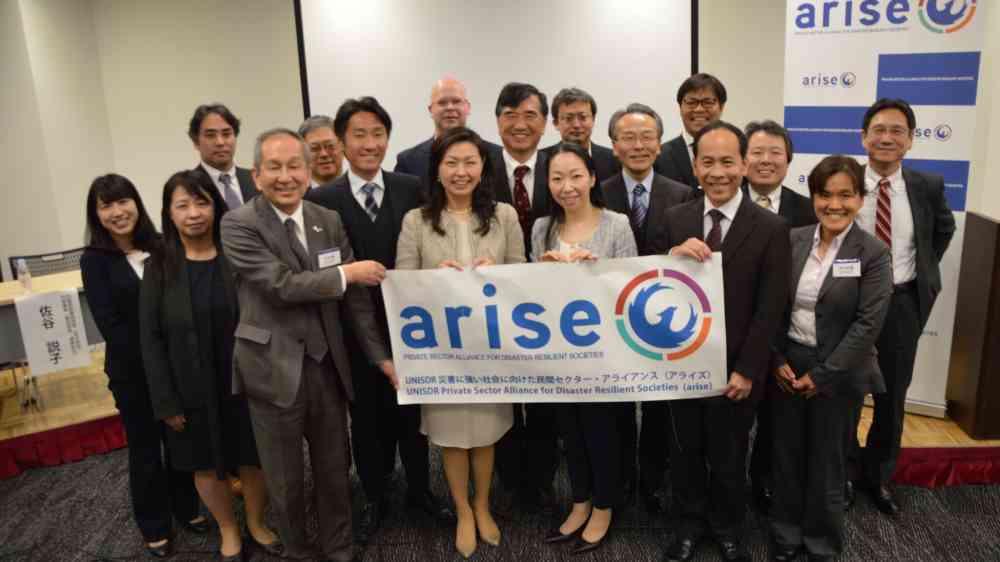ARISE Japan’s activity plan is the first voluntary commitment published by an ARISE national network

KOBE – The Private Sector Alliance for Disaster Resilient Societies (ARISE) is a network of private sector entities working in partnership with the United Nations Office for Disaster Risk Reduction (UNDRR) to substantially reduce disaster mortality based on risk-informed investments and resilient capital assets. Thus, all ARISE member companies as well as ARISE national networks around the world voluntarily commit to help implement the Sendai Framework for Disaster Risk Reduction 2015-2030, the global roadmap for reducing disaster losses by 2030.
To translate their intentions into real progress by private sector entities, ARISE national networks periodically draft activity plans detailing specific actions under five areas of work: raise awareness; influence spheres of expertise; share knowledge, experience, and good practices; catalyze innovation and collaboration for risk-informed business strategies, and implement projects and activities in the private sector.
The ARISE national network in Japan (ARISE Japan), established in 2015, became the first national network to publish its activity plan on UNDRR’s Voluntary Commitments online platform. Once published in the platform, activity plans become specific and time-bound voluntary commitments that showcase the work of ARISE networks on DRR. In addition, the platform serves as a tool to monitor their commitments, highlight deliverables, and report on progress (the platform has an automatic system of notifications and friendly reminders). These features promote accountability among stakeholders. Furthermore, by knowing ‘who is doing what, where,’ opportunities for collaboration with the wider DRR community can emerge while minimizing duplication of efforts. In turn, UNDRR is able to take stock of the work done by stakeholders around the world towards the implementation of the Sendai Framework, which is shared through knowledge products such as the Voluntary Commitments Synthesis and Analysis report.
ARISE Japan’s voluntary commitment will last from 2019 to 2022 and is focused on building resilience in the tourism sector. This commitment is especially relevant considering the ongoing COVID-19 pandemic, which has exposed the systemic nature of risk and the challenge of building resilience in the tourism sector. ARISE Japan reported that the theme was originally proposed by the network lead, Masato Takamatsu, from the Japan Tourism Research and Consulting Company. The tourism sector was eventually selected because of its cross-cutting nature, variety of business sizes and types, and potential to concretely demonstrate the benefits of preparedness, disaster risk-aware business management, and close public-private collaboration.
ARISE Japan’s voluntary commitment was made in the spirit of alignment between the Sendai Framework, the 2030 Agenda for Sustainable Development, Paris Climate Agreement, New Urban Agenda, and the Agenda for Humanity. Embedded in the voluntary commitment is the hope of ARISE Japan to motivate ‘traditional’ DRR solution providers to use their know-how to help make the vulnerable, but economically significant, tourism sector resilient.
Related Links:
Sendai Framework Voluntary Commitments online platform
https://sendaicommitments.unisdr.org/
ARISE Japan voluntary commitment
https://sendaicommitments.undrr.org/commitments/20190305_008
Voluntary Commitments Synthesis and Analysis report
http://unisdr.org/go/sfvc/report2019